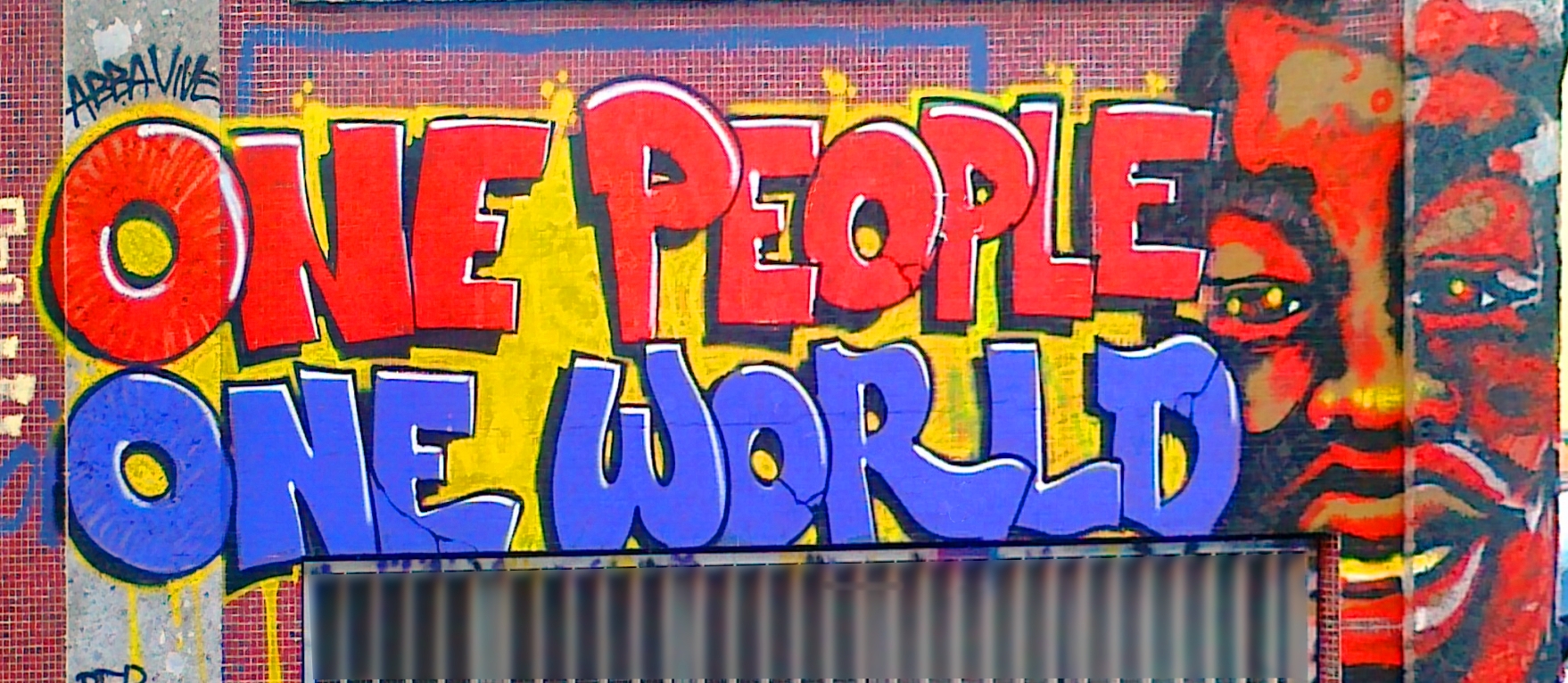
Language & Racism
Language and Racism
QR Link
Preparation
Transcript
Greg O’Keefe: You can’t explain it to them because then if they- very few Japanese will explain it to them and (Yeah yeah) It’s just it’s kind of like a- it’s real- to be quite honest it’s almost like a non-subject in many ways because you can’t- it’s, some people either understand it or they don’t understand it. And I’m not trying to put those people down or anything, it’s just- it’s just kind of beyond that- you can’t really have that conversation, that uh…
José Cruz: I- if the person is self-aware and they know that they’re prone to that (Yeah) then you can approach it gingerly, and say, “Oh by the way you don’t actually have to say, “doumo arigatou gozaimasu” EVERY time, (Yeah) you know, you you don’t have to- because that actually sounds- (I don’t know about this) that’s a little off-putting to the Japanese if you do that every time” and they go, “Oh but why is that? Isn’t that the most polite thing?” “Yeah but you see the thing about politeness is that ‘na na nasaid in this way, it indicates a dislike for the remaining part of what is being said. (0:40)‘ ”. I I get jaded and I don’t really want to help anymore, and I think that’s the deal that you were talking about just now.
Greg: Yeah, it’s true. It is, It’s just exactly like that. I often feel because I’m at the university. I’m studying and doing my PhD there. I I’m surrounded by younger uh, (Expatriates?) No new people, (Japanese) Newbiesa slang term for anyone who is new to something.(0:59) newbies newbie foreigners.
José: Newbie foreigners, so “expats”, OK.
Greg: So… they’re not really expats they’re just students really from other schools (Ahh OK) because I’m doing- Like I’m studying- this is…
José: Well I call them, I like to say “expats” because I can’t get myself to say “foreigner” And I don’t want to say “gaijin” because we’re speaking in English.
Greg: Well you could say, non-Japanese, uh I know…
José: Well actually that’s a good question, I’ll ask your opinion on that. I’m seeing more and more on Facebook- and not just the expats living in Japan saying the word “foreigner” more easily, but when I was growing up in Canada, the word foreigner was essentially um a a discriminatory word. (Yeah it is) To refer to someebody as a foreigner, “Oh you foreigners don’t know nuthin’ about ‘murica!” (‘Murica!) And it was it was a discriminatory word. And now people are throwing it around as if it’s an OK thing to say. (Well) And I don’t know if this is just me being 53 years old, you know.
Greg: It’s desensitizing themselves to the words (Could be) I mean I’ve done it. I’m guilty of that I- I don’t- you know it’s the way it’s used is really important (Could beshort for “it could be” (1:55)) And I think also so many people see that as an almost- even they don’t like being called it, and uh, nobody will call you a foreigner in English. Usually only the expats call themselves foreigners. Like you don’t have a Japanese person actually calling you the word foreigner. (When I get-) It’s always it’s “gaikokujin” or “gajin”, right?
José: Well no when I, OK, In Japanese no they won’t (they won’t) because number one they’re not speaking English properly and they will call you gaijin, but I hate even more the term gaikokujin please don’t say that to my face. That’s just false politeness. (I know) And the thing is tho’ I use the word gaijin in Japanese, because Japanese is another matter entirely. The word gaijin is not necessarily discriminatory, but the word foreigner definitely is.
Greg: I agree. I agree. It’s true. You know, when it comes to my Japanese friends, and if they’re calling me “gaijin san” or “gaijin” or “gaikokujin” I always ask them, where am I from? And they always say, “oh you’re from America”. And I say well…
José: Well then friggina more acceptable form of swearing. (2:47) ’ say that!
Greg: Well that’s right. And I say, “you know something tho’ ” I say, “why don’t you, from now on when you meet someone from a different country (Yeah) find out what country they’re from and say, ‘what about Americans, what do they do?’ “ They, yeah- It’s better to say that. I’d rather I’d rather have them ask me that but if- you know, I’m not the same as someone from Zimbabwe or Nigeria. (Exactly) So really don’t throw me in the same group.
José: Don’t don’t don’t ask my opinion to represent the other 99.999% of the world.
Greg: I don’t want to make the Nigerians look bad.
José: Sure because, or they might make me look good. And I turn it around to my kids too, OK If you call me “gaijin” again in English, you know what I’m going to call? I’m going to call you, “AjiajinJosé is is being pejorative by using the Japanese word for “Asian”(3:20)”. (Ajiajin) I’m going to call you Ajiajin, OK. I’m going to call you Ajiajin. I’m going to put you- I’m going to lump you in a salad bowl with the Vietnamese, the Nepalese, the Chinese, and the Mongolians and you’re going to have to represent all of them.
Consolidation
QR Link
Access this article on your mobile device

Language and Racism
Speakers

Greg O'Keefe
American
Boston, Massachusetts

José Domingo Cruz
Canadian
Vancouver, British Columbia
Statistics
- words (including pause words)
- minutes in the mp3 audio
- words per minute for this article
Continue practicing your English fluency with the related posts above, or navigate to other authentic conversations using the Previous and Next buttons below.
Spritz
To spritz only part of this conversation, highlight the text you want and click the “SPRITZ NOW!” button. Clicking the button without any text highlighted will spritz the entire page.
To quickly adjust the words per minute (wpm), you can use the left and right arrow keys.
Writing comments will help your English writing skills. Feel free to ask questions and share opinions. We try to respond to all comments we get on the site. test




0 Comments